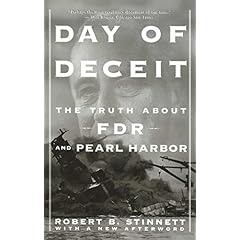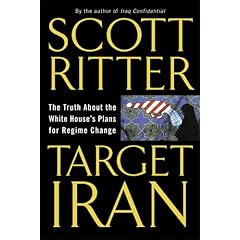A recent short piece in The Nation, “Ron Paul’s Roots,” by Christopher Hayes, has this eye-popping denunciation of Rep. Paul by the unbearably pompous Brink Lindsey, a Cato Institute “scholar” and recently appointed vice president for research,
“He doesn’t strike me as the kind of person that’s tapping into those elements of American public opinion that might lead towards a sustainable move in the libertarian direction.”
Here’s a new logical fallacy: the argument from snobbery. He isn’t our “kind of person.” What kind of person might that be? Well, it’s not at all clear. What is clear, however, is who isn’t “our kind of person.” As Senor Lindsey puts it:
“You have this weird group of people. You’ve got libertarians, you’ve got antiwar types and you’ve got nationalists and xenophobes. I’m not sure that is leading anywhere. I think he’s a sui generis type of guy who’s cobbling together some irreconcilable constituencies, many of which are backward-looking rather than forward-looking.”
Oh, those backwoods anti-IRS hicks, with necks redder than the reddest state, hopeless Neanderthals who would never read Lindsey’s book, The Age of Abundance, wherein he describes the supposedly “libertarian” utopia being ushered in by “the sexual revolution, environmentalism and feminism, the fitness and health care boom and the opening of the gay closet, the withering of censorship and the rise of a ‘creative class’ of ‘knowledge workers.'”
Lindsey and his fellow creative geniuses are too good for the poor untutored hoi polloi who don’t go to the gym four days a week and are neither feminists nor gay. In Lindsey’s lexicon, “Forward-looking” means “people like me,” and “backward-looking” stands for non-feminist non-gay non-gym-going proles, who don’t count anyway.
In any case, sneers Lindsey, Paul “comes from a different part of the libertarian universe than I do.” Yes, it’s all about him and his exotic prejudices.
I had to laugh when I read how Hayes demarcates the pro-Paul “populist” libertarians from the anti-Paul crowd — the latter are deemed the “cosmopolitan” faction! Yeah, as in Cosmopolitan magazine.
Lindsey’s haughtiness is really a joke, especially when it’s married to his clueless political analysis: who are these “xenophobes” he talks about — the overwhelming majority of Americans who don’t support his own “open the borders” position? And as for these alleged “nationalists” flocking to the Paulian cause: I guess this means they’re attracted to Ron’s questioning of why we’re going to war on account of UN resolutions and entangling alliances. Otherwise, I can’t imagine a less nationalistic candidate, in the modern sense of aggressive expansionism — which surely is better suited to Lindsey’s own position in favor of the Iraq war and the “liberation” of the Middle East.
What the Nation doesn’t tell us, however, is what might really interest Nation readers: that Lindsey’s critique of Paul is really rooted in Lindsey’s pro-war position. He argued in favor of the Iraq war in a piece for Reason magazine, basically making the neocon “weapons of mass destruction-they’ll-greet-us-as-liberators” argument, while Paul, of course, was against the war from the beginning. Having abandoned the core libertarian stance — opposition to mass murder by the State — Lindsey and his ilk are on their way out of libertarianism, as I’ve explained elsewhere, while Paul and his “backward-looking” brethren represent the future of the movement.
The hostility of the Beltway faux-libertarians to the Paul campaign is no surprise, as I explained here, but I’m glad to see the Reason folks are coming around. As the Hayes piece puts it: “Nothing breeds harmony like success, and the Paul bandwagon is now getting big enough for both the Hatfields and the McCoys to get on board. ‘Our readership is very enthusiastic,’ says Nick Gillespie, editor of the DC-based magazine Reason. A few months ago Reason published an article titled ‘Is He Good for the Libertarians?’ That no longer seems an open question.”
Hayes has got that right. Unfortunately, he gets other matters quite wrong: for example, I haven’t seen a single “Confederate nostalgist” at a Ron Paul event, and I’ve been to a few. I don’t imagine there are very many of these in New Hampshire, at any rate, where Ron is up to 8 percent. Hayes also brings out the “white supremacist” canard, based on the unsolicited “support” of someone who served with Dubya’s shock troops in Florida during the recount — a coincidence that seems just a bit dicey, if you think about it for a moment.
Hayes doesn’t want us to know that the key issue between the tiny Lindsey faction and the really existing libertarian movement is the war, and the issue of our foreign policy of global aggression. Just like he doesn’t want us to know the difference between Paul and all the Democratic presidential aspirants but Kucinich — which is the former’s unequivocal opposition to the war and his call for the immediate withdrawal of all US troops. If Paul runs as a third party antiwar candidate, and Hillary gets the Democratic nod, good luck to The Nation in walling off its leftist audience from Ron’s appeal. That some alleged “libertarians,” who are furthermore associated with the leading libertarian think tank, are helping to smear Ron and allowing themselves to be used in his way, is beneath contempt.





